On Wednesday, the 1st of February, 2023, Bionow hosted the 2023 BioInfect Conference at Alderley Park Conference Center. The aim of the conference was to bring the best brains in science, industry, and patient experience together to confront the current challenges within the field of antimicrobial resistance.
During the conference, we had the chance to catch up with some of the speakers to ask them about their work, as well as what they would be discussing at the 2023 BioInfect Conference. Read their perspectives below.
Please could you introduce yourself and tell us about your background in infectious disease research?
I’m Jane Theaker, CEO of PBD Biotech Ltd. I have a background in diagnostics gained from the NHS, AstraZeneca, Qiagen, the Laboratory of the Government chemist (LGC), and Kinomica. My main focus has been on real-time qPCR assay development. I am a co-inventor of Scorpions (a type of qPCR signaling system). I have helped develop diagnostics in Oncology for EGFR and Kras and infectious diseases in Chikungunya." - Jane Theaker, CEO of PBD Biotech. Ltd
I am Pia Thomas. I'm the VP for Anti-Infectives at Evotec. We've got a team of about 40 people in the UK, working on all aspects of infection; antiviral, antifungal, and antibacterial." - Pia Thomas, VP for Anti-Infectives at Evotec.

I'm Janet Hemingway. I'm the CEO of iiCON, the Infection Innovation Consortium. I started life as a geneticist, but I've worked in infectious disease therapeutics from early-stage discovery to getting these products out into the market for the last 40 years. " - Janet Hemingway, CEO of iiCON. 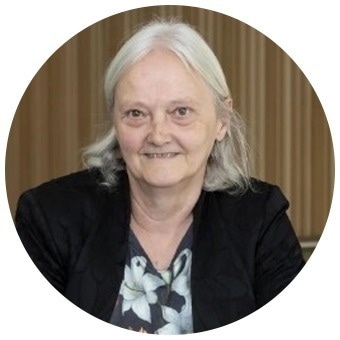
I'm Ed Siegwart. I'm the Director of Microbiology at Oppilotech. Originally, my background was in antimicrobial drug development, working as part of CROs. I joined Oppilotech to help advance their antimicrobial drug development programs.
The company uses AI and ML to model the biochemical processes in cells on a very high level, intricate detail. The point is that you can identify novel drug targets that might be non-intuitive, but you can als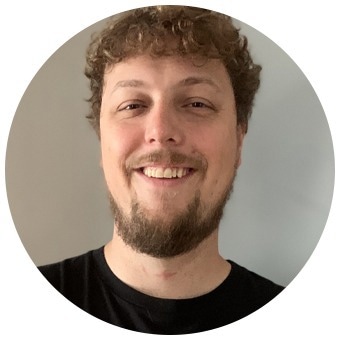 o find a mechanistic explanation as to why that target is a good target. My job at Oppilotech is to help take some of those targets defined by the model and turn them into drugs, particularly on the antimicrobial side. " - Ed Siegwart, Director of Microbiology at Oppilotech.
o find a mechanistic explanation as to why that target is a good target. My job at Oppilotech is to help take some of those targets defined by the model and turn them into drugs, particularly on the antimicrobial side. " - Ed Siegwart, Director of Microbiology at Oppilotech.
You are currently speaking/presenting/exhibiting at the 2023 Bioinfect Conference. Could you tell us a little bit more about what you are exhibiting/presenting?
Phage are viruses have developed over millions of years to be very specific for a particular host bacterium and only infect live bacteria.
Mycobacteria Tuberculosis (Mtb), the bacteria that causes tuberculosis, has a very thick cell wall. So, we use a phage in our diagnostics to infect and lyse open the live Mtb to release the mycobacterial DNA, which we can then detect and identify in a PCR test.
Many people are carriers of TB but show no symptoms. Being able to detect viable mycobacteria in the blood (bacteraemia) tells clinicians something very important; the patient is unable to control the Tb infection and without treatment it will progress to TB disease.
Our test identifies infection much earlier than current diagnostics, before clinical signs and symptoms have appeared, and it identifies patients progressing from latent TB to active, infectious disease.
I presented a 10-minute talk that discusses how phage works and the results of two clinical trials which show the use of our diagnostics to detect the progression of TB from latent to active forms and how our diagnostic results correlate with clinical evidence from imaging of the lungs." - Jane Theaker, CEO of PBD Biotech.
I chaired the panel discussion “State of the AMR Nation.” This panel discussion is an annual event to monitor the progress and changes made within the field. We had a panel of five experts from Bev Isherwood from the Medicine Discovery Catapult, Janet Hemingway from iiCON, Ed Siegward from Oppilotech, Lloyd Payne from Arrepath, and Phil Packer from InnovateUK. " - Pia Thomas, VP for Anti-Infectives at Evotec.
I've been talking about the iiCON Consortium. It was set up two years ago to get academia working with industry and the NHS to fulfill real needs. It's had some spectacular success over the last two years. We've gone from a standing start, getting those partners working together to helping companies get products through to market. The program now covers a 200 million pound portfolio of activity from drugs to vaccines, diagnostics, and other areas.
We've managed to get 19 products through to market and around five billion of units of those products into patients and populations, which is great. We have a pipeline of other products and a growing network of companies working with us. " -Janet Hemingway, CEO of iiCON.
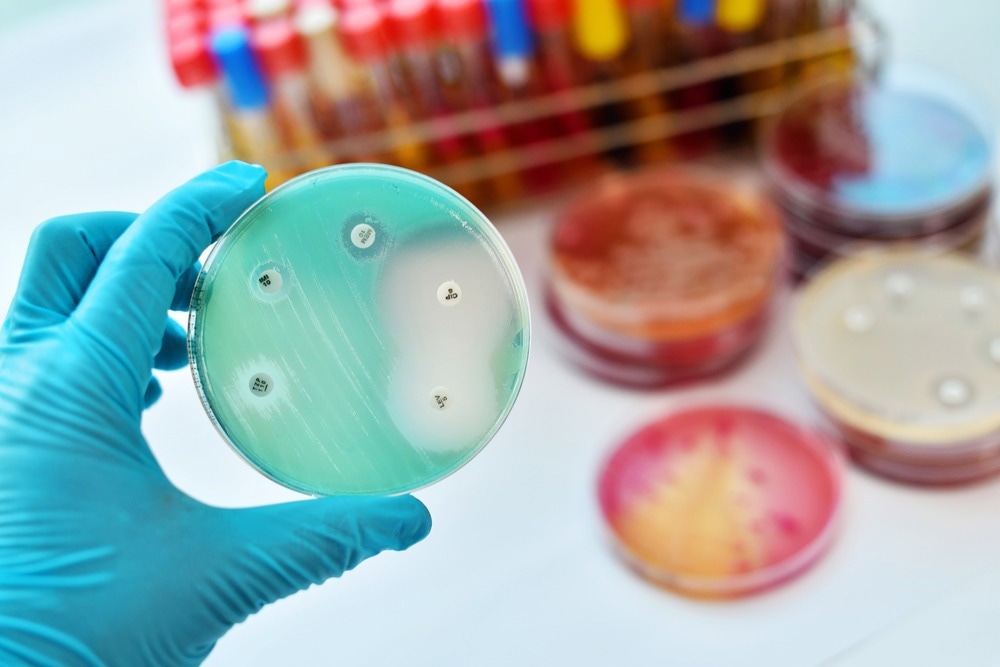
Image Credit: Jarun Ontakrai/Shutterstock.com
I was on the AMR State of the Nation panel. It was discussing anything and everything about AMR. The field of AMR is an immensely complicated problem that requires political, geopolitical, and way bigger solutions than currently available to solve the issue. It's not just a medical issue; it's a global problem. " - Ed Siegwart, Director of Microbiology at Oppilotech.
How has the COVID-19 pandemic changed the way researchers and the general public think about infectious disease research?
I think COVID-19 has elevated the voice of the diagnostics industry. People now realise the importance of PCR as a gold-standard test and lateral flow as a point-of-care assay to support disease control. It has also changed how we think about future disease outbreaks and will encourage greater investment in infectious disease research to support preparedness." - Jane Theaker, CEO of PBD Biotech.
When I first started talking to the general population about infection, most of them didn't understand what we were talking about. Now you can talk to anybody from school children to old-age pensioners about infection and infectious diseases. They know about diagnostics, vaccines, and drugs. Our job is really to say this isn't just specific to COVID-19.
If you think about all these infectious agents, and antibiotic resistance comes into that category, we need to have the same almost level of engagement there. If we are going to keep our populations healthy long-term, we need these therapeutics to be available, we need them to be effective, and we need them to be used sensibly.
I started my career thinking I wanted to get into this to make a difference, and it's still what gets me out of bed in the morning. What matters to me is that I suspect there are probably half a million kids out there who are alive today because of what we've done. Had I not done what I've done in my career, those children would've died." -Janet Hemingway, CEO of iiCON.
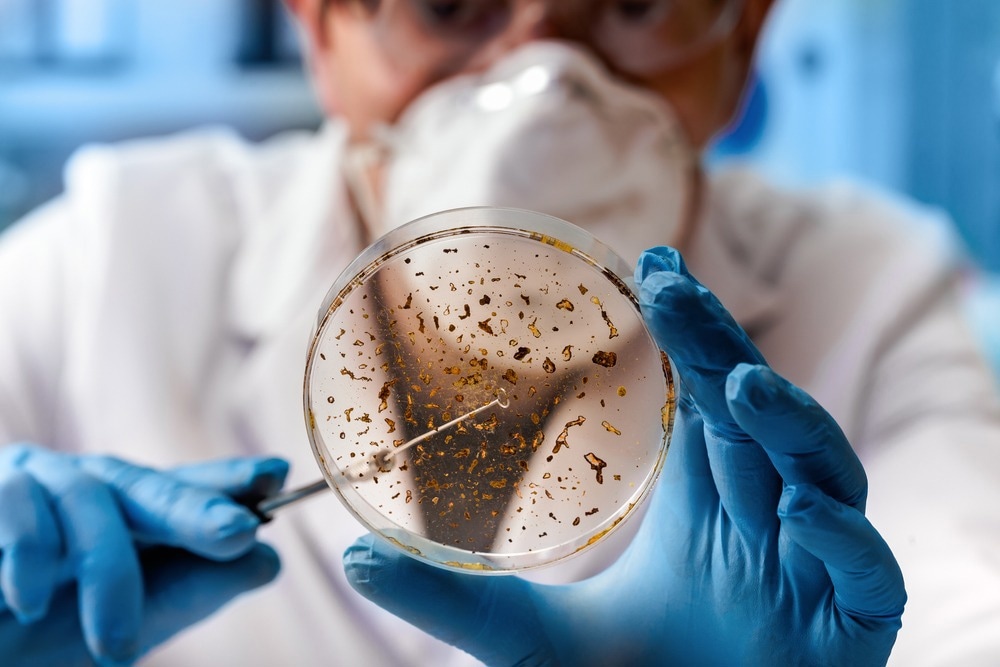
Image Credit: angellodeco/Shutterstock.com.
With the WHO declaring AMR one of the top 10 global public health threats facing humanity and with 3.57 million deaths associated with resistant pathogens in 2019. What are the challenges in developing anti-infectives and the problem of resistance?
Having good diagnostics in place to ensure only patients that require treatment are treated is the first pillar of our defence against AMR. This is where personalised medicines come to the fore. Anti-infectives need to be developed with a diagnostic strategy to ensure resistance is minimized. - Jane Theaker, CEO of PBD Biotech.
Resistance is the underlying problem. You soon get resistance as soon as you bring a drug onto the market, certainly in small molecules. One of the people in the audience from the discussion brought that up nicely by asking, “How can you win the race against the development of the resistance?” You only can do that if you get a portfolio of drugs that stagger along and fill in the gaps. - Pia Thomas, VP for Anti-Infectives at Evotec.
Money plays a major role. You come up with a set of data to convince a grant funder or investor to back your company, then you use that to generate a bigger pack of data, and then it goes on to the next stage. It's getting the funding in because investors won't risk going in on a company without data; it's forming those data packs that prove what we believe, that these are good drug targets. - Ed Siegwart, Director of Microbiology at Oppilotech.
What does the future of infectious disease research/anti-infective research look like to you?
Very bright, in short, Covid has elevated the importance of managing infectious diseases, such as tuberculosis. We have great doctors, academics, researchers, drug companies and diagnostics companies - all geared up to tackle this challenge and the next that the microbial world fires at us! - Jane Theaker, CEO of PBD Biotech.
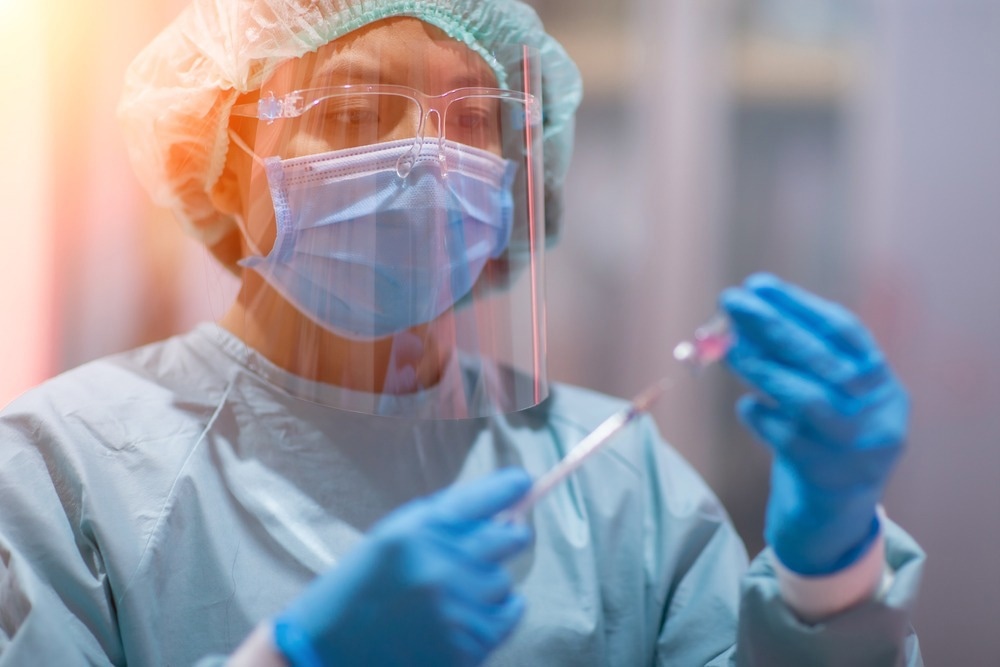
Image Credit: AnaLysiSStudiO/Shutterstock
One of the points that came up during the panel discussion is that a lot of modern medicine would not be possible without anti-infectives. So whatever happens, anti-infectives will have to be there. Novel approaches that include phage therapy, antibody therapy, and RNA therapy are coming on, making it a lot easier to respond to resistance." - Pia Thomas, VP for Anti-Infectives at Evotec.
The industry's got to come up with solutions that it hasn't yet. Far too many drugs are coming through at the moment that are mediocre at best, leading to companies going under. Even if their drug is good, you can still go under. - Ed Siegwart, Director of Microbiology at Oppilotech.
Are you currently involved in any exciting research projects? If so, what are they?
PBD Biotech are developing out Human TB diagnostic. We anticipate this will lead to ways of shortening the drug development cycle for vaccines and drugs. We can’t wait to show what our test can do!" - Jane Theaker, CEO of PBD Biotech.
We are thinking about how we will try and develop this supercluster. Because we've already got the building blocks for that, but I think there's more we can do, and we are at that pivot point right now. " -Janet Hemingway, CEO of iiCON.
All the drug targets that we have are exciting. They're all novel drug targets that no one else is currently researching." - Ed Siegwart, Director of Microbiology at Oppilotech.
Where can readers find out more information?